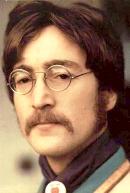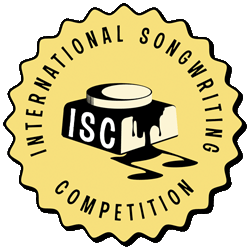|
|
|
|
|
|
|
|
|
|
|
|
|
|
|
|
|
|
|
|
|
|
|
|
|
|
|
|
|
|
|
|
|
|
BRUCE SPRINGSTEEN
I was always concerned with writing to my age at a particular moment. That was the way I would keep faith with the audience that supported me as I went along...I'm a synthesist. I'm always making music. And I make a lot of different kinds of music all the time. Some of it gets finished and some of it doesn't...The best music is essentially there to provide you something to face the world with
 JONI MITCHELL
JONI MITCHELL
You could write a song about some kind of emotional problem you are having, but it would not be a good
song, in my eyes, until it went through a period of sensitivity to a moment of clarity. Without that
moment of clarity to contribute to the song, it's just complaining
 JOHN LENNON
JOHN LENNON
A Day In The Life . I was reading the paper one day and I noticed two stories. One
was the drinks heir who killed himself in a car - one of the Guinness family. Tara Brown. That was the
main headline story. He died in London in a car crash. On the next page was a story about 4000 holes in
Blackburn, Lancashire. In the streets, that is. They were going to fill them all. Paul's contribution was the
beautiful little lick in the song ' I'd love to turn you on '. I had the bulk of the song and the words, but he
contributed this little lick floating around in his head that he couldn't use for anything. I thought it was a
damn good piece of work. Paul provided a lightness, an optimism, while I would always go for the sadness, the discords, a certain bluesy edge. There was a period where I thought I didn't write melodies, that Paul wrote those. But when I think of some of my own songs, ... "In My Life", or "This Boy", I was writing melody with the best of them.
|
 AMY WINEHOUSE
AMY WINEHOUSE
Songwriting is an exorcism. I get all my stuff out there. If I didnt have this medium to get my experiences across, I would be lost
 JAMES BLUNT
JAMES BLUNT
As emotional upbringings go, being sent away to boarding school at seven is as great an inspiration as
any songwriter could have - to be taken away from one's family and locked away for 10 years. It does
create an incredible intensity of emotion
 AVRIL LAVIGNE
AVRIL LAVIGNE
I wrote Girlfriend when I was drunk. The chorus was written in two minutes. It took nothing. And what's
really cool about I Can Do Better is we wrote it, and then I just ran into the booth, and I sang. I laid
down the verse, and ... we just used my demo [take]. It was totally different - so much fun!
 KATIE MELUA
KATIE MELUA
I would love to go in there and make an album full of songs I've written, but the most important thing for
me is that they are good songs. "I know I'm not that experienced in songwriting and Mike Batt's been
doing it for so long, and is so bloody good. So for me, the priority is that the songs are great. I think he
wants me to write more. So do I but I'm not going to stop recording other people's songs just to be
pretentious
 JOHN LENNON
JOHN LENNON
Please Please Me is my song totally. It was my attempt at writing a Roy Orbison song, would you
believe it? I wrote it in the bedroom in my house at Menlove Avenue, which was my auntie's place. I
heard Roy Orbison doing Only The Lonely or something. That's where that came from. And also I was
always intrigued by the words of Please Lend Your Ears To My Pleas, a Bing Crosby song. I was always
intrigued by the double use of the word please. So it was a combination of Bing Crosby and Roy Orbison

|
|
|
|
|

The Original Songwriting Centre Founded 1967
International Songwriters Association The ISA
Getting Your Songs Into
TV Shows And Films
By Aaron Davison
Getting your songs placed in television shows and films can be a wonderful source of supplemental income for musicians, or even a full time income in many cases.
These days there are endless opportunities to provide your music as background music for various mediums. From TV shows to movies to websites and video games, independent music is everywhere.
The music industry, like all industries, is constantly changing and evolving. To survive, and eventually thrive, it's imperative that you stay abreast of where the music industry is headed and stay on top of where the demand is for your music.
Getting Paid
For television shows, each time a song is used on air, a performance royalty is generated. The royalty amount varies based on a number of factors including the length of the segment as well as how prominently it is used. Each performance generates both a writer's and publisher's royalty.
If you work with a music publisher, you both essentially get half of the entire royalty. If you are able to place the music without the aid of a publisher you retain both the writer's share and publisher's share of the performance royalty.
Again, the amount varies, but to give you an example the first song I had placed was in a scene that lasted about 55 seconds on a daytime drama in 2002.
The royalty check I received for the placement was over $800.00! Not bad for less than a minute of airtime.
The first step in getting started in this business is to start making contacts and submitting your music to people in the industry.
There are literally thousands of different opportunities for places to submit your music for potential placements in film and television so let's look at two different approaches you can take:
The Direct Route
One way to get started in this business is to directly contact music supervisors who place music in TV shows and Films. Music Supervisors make their living by selecting the music that is used in the productions they are involved in.
They are ultimately the people who make the decision as to what music is used. The upside of this approach is that when you operate this way you are essentially acting as your own publisher and you will receive both a writer's and publisher's royalty if your music gets used.
The downside is that you probably don't have any relationships established with music supervisors and although it's certainly possible to establish relationships and "break in" this way, it's going to take a lot of leg work!
The Indirect Route
This is the way I got started and I suggest you try this approach first.
In addition to music supervisors there are also music publishers whose job it is to screen music and present music to music supervisors for potential placement.
These people typically have established relationships (if they're established publishers) and they make their living by "shopping" music to supervisors. They typically work hand in hand with supervisors and help them find the right type of music for their project. For example, let's say a music supervisor is working on a film and they need a song that sounds something like the latest White Stripes song.
Since they can't actually afford to license the latest White Stripes song they will then contact a publisher, or several publishers, and put the word out that they are looking for songs in the vein of The White Stripes. These publishers will then scour their catalogs looking for songs that are a match and they'll present these songs to the supervisor.
The downside of working with a publisher is that they typically receive half of all royalties generated. This is what's called a publisher's royalty, and it's how publishers make their living. Publishers typically also split licensing fees with writers, which is a one time fee paid for the use of whatever song is being used.
Unless you already have connections in the music industry, I suggest starting with a publisher that is established in the business. Usually they have established relationships that have taken them years to establish. Splitting your royalties is a fair trade off when you consider how helpful they can be in getting your music into the right hands.
Aaron Davison is a Berklee College Of Music Alumnus who has been working
in the music business for over ten years. His songs have been heard on a
variety of television shows and he has performed live throughout the midwest
For more information on getting your songs placed on TV and film, visit
How To License Your Music
Already An ISA Member?
For hundreds of articles on songwriting, lyric writing and music publishing,
written by experts like Aaron Davison. enter the ISA Private Members Site

ISA International Songwriters Association (1967) Ltd
PO Box 46 Limerick City Ireland Tel 061-228837 Fax 061-2288379
ISA Website http://www.songwriter.co.uk Editorial E-Mail internationalsongwriters@gmail.com
International Songwriters Association Limited
Registered In Dublin, Ireland Company Number 38917
Registered Address High Chaperal, Raheen Heights, Limerick City, Ireland
Postal Address PO Box 46, Limerick City, Ireland
|